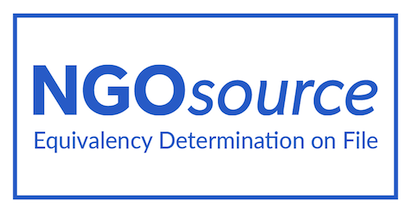On the Ground in Kasara: Lessons from a Contextual and Collaborative Evaluation of Child Nutrition in Tribal Communities
Jul 2 2025 / Posted in Child nutrition
For over two decades, SNEHA has embedded research and evaluation into the heart of its public health interventions—shaping, strengthening, and scaling evidence-based programs across Mumbai’s vulnerable urban settlements. In 2025, we ventured into unfamiliar territory. The tribal belts of Kasara-with their dense forests, remote hamlets, and limited health and nutrition resources- became the setting for a new chapter in our research journey. This was not just another evaluation. It was a learning voyage.
Kasara’s tribal regions are marked by high rates of acute and chronic malnutrition among children. These outcomes are not just the result of food insecurity, but stem from systemic challenges—historic underinvestment in services, strong adherence to traditional beliefs and practices that often limit awareness, and the sheer inaccessibility of remote villages. While SNEHA has been running a system-strengthening malnutrition management program in partnership with ICDS in this geography, we knew that evaluating its impact would need a different approach than what we usually use.
We were venturing beyond the known—away from the current evaluation expertise of urban slums and into a tribal context that demanded understanding of indigenous community structures, adaptation and community acceptance.
Reframing the Evaluation Approach
Right from the conceptualization phase, we recognized that standard evaluations may fall short in complex, culturally distinct settings. Hence, we reimagined our approach. We developed a context-sensitive evaluation tool that ensured relevance and responsiveness. The tool was carefully adapted to reflect local realities—simplifying language, incorporating dialects, and ensuring cultural appropriateness. Importantly, we involved local ICDS frontline workers and community voices right from the planning stage. This participatory approach not only enhanced transparency but also built trust—a non-negotiable in communities that have historically been wary of outsiders.

Training Evaluators Beyond Survey Methods
The research team expanded their skillset beyond technical skills. Evaluators were trained in behavioral competencies—respectful engagement, cultural sensitivity, and the nuances of non-verbal communication in tribal settings. Understanding local hierarchies, rituals, and rhythms was crucial. The goal was not just to collect data, but to honour lived experience—to ensure our presence was seen as collaborative, not extractive.
We also invested in building relationships. Primary caregivers were not simply “respondents”—they were partners in the process. The team held informal dialogues with community members in anganwadis before starting actual data collection, allowing rapport to grow organically.
Preparatory Phase
Even with a solid survey plan in place, as a part of our standard operating procedure for any survey, the prep work in Kasara needed extra attention—managing remote road access, covering widely spread-out villages, accounting for seasonal migration of respondents, building rapport with Anganwadi workers, and identifying community guardians who could support community entry and encourage community participation.

Key Insights and Dissemination
Over 210 primary caregivers of under 5-year children across Anganwadis of 20 villages participated in our survey, which measured access to ICDS services-ease, regularity and satisfaction levels, with nutritional status of children under five. Caregivers reported barriers such as long travel distances to access services, frequent interruptions in supply delivery, impact of parental migration for work on child access to anganwadis, seasonal hardships such as extreme heat and heavy rainfall disrupting the access. Despite these challenges, they expressed aspirations for improved child outcomes and appreciation for the role of Anganwadi workers, highlighting the underlying resilience within these communities irrespective of resource scarcity. These voices—distinct from those we usually hear in urban contexts—brought alive the data, turning metrics into meaning.

Aftermath of results
The findings were shared with ICDS officials through a joint dissemination forum. Although the findings on malnutrition levels were initially challenging, the collaborative and transparent design of the evaluation facilitated shared ownership, encouraging constructive dialogue and joint problem-solving. Recommendations such as provision of anthropometry scales to all Anganwadi, streamlining distribution of supplementary nutrition, refresher trainings of Anganwadi workers and exploring additional funding avenues through CSR were discussed and taken forward.

What Kasara Taught Us
This journey reminded us why contextual and adaptive approaches in research are not optional—they are essential. In tribal settings, the stakes are too high and the history too fraught for rigid methodologies. To generate meaningful, actionable evidence, research must evolve—towards co-creation, community ownership, and real-time responsiveness. Especially when this is done with government as a stakeholder, it’s a tight rope walk-maintaining collaboration while upholding objectivity, ethical rigor, and the independence of the research process.
For SNEHA, this wasn’t just a research activity—it was a reaffirmation of our values in action. It called for valuing each respondent of tribal communities and their lived realities. It demanded integrity to research ethics while undertaking the survey, collecting data responsibly, and interpreting it with honesty. It reinforced our commitment to quality and excellence, ensuring the evidence we generated was not just robust, but relevant—amplifying the voices of tribal communities and informing meaningful change through systemic intervention.
As we reflect on our work in Kasara, we carry forward not just findings— but stories of change, barriers, and the power of contextual solutions.
To read more about the SNEHA’s research work: https://www.snehamumbai.org/research/
To know more about SNEHA’s work in tribal communities of Kasara: https://www.snehamumbai.org/maternal-and-child-health/
Share:















